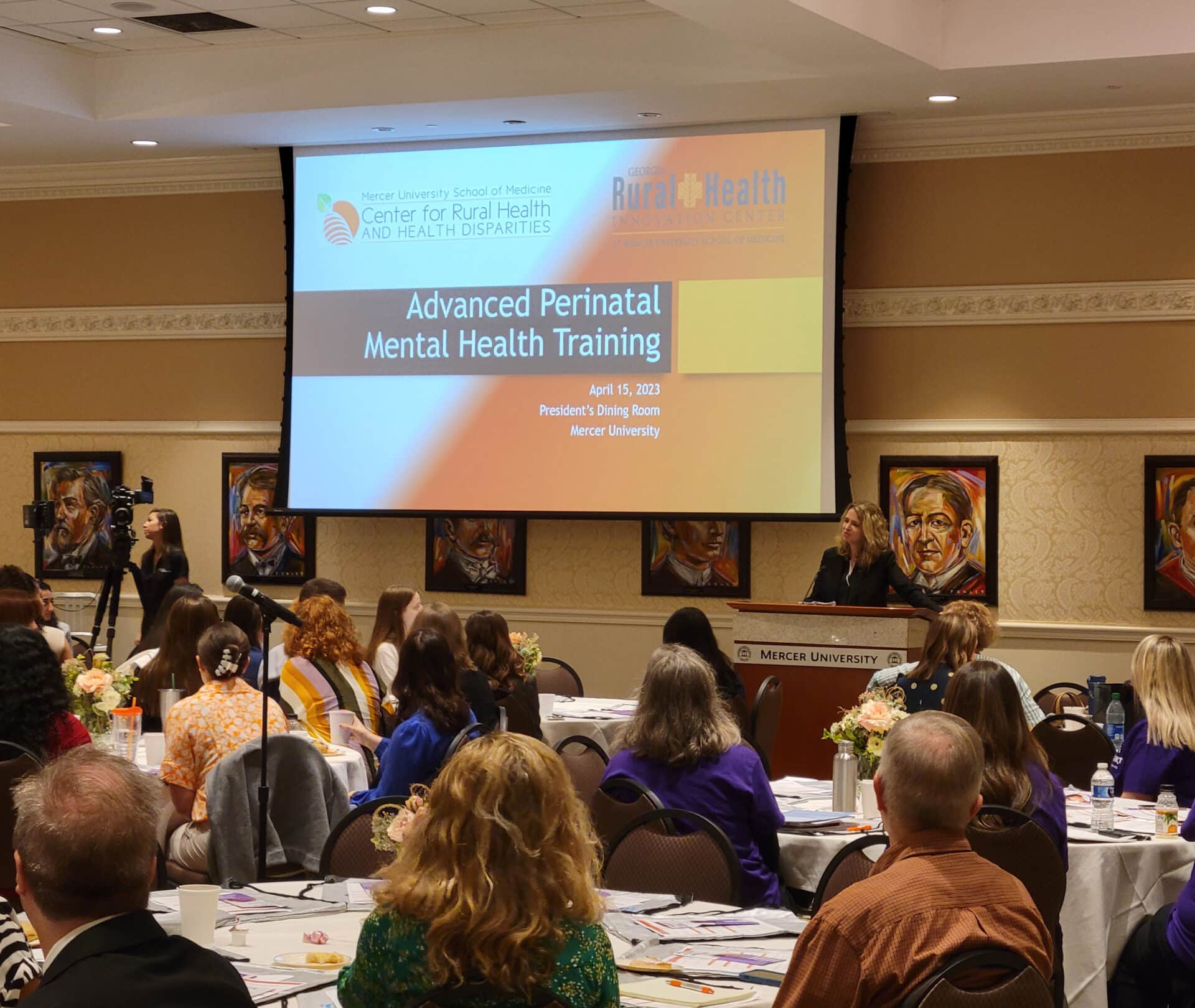
Maternal mental health is a growing health care crisis nationwide. According to the Center for Disease Control and Prevention (CDC) report on maternal mortality rates by state, Georgia has the seventh highest rate. Based on data from 2017-2019, the CDC reported that mental health conditions were among the most frequent underlying cause of pregnancy-related deaths in the country.
To address the mental health challenges faced by pregnant and postpartum women, the Georgia Rural Health Innovation Center (GRHIC) and the Center for Rural Health and Health Disparities (CRHHD), located at Mercer University School of Medicine (MUSM), held a free Advanced Perinatal Mental Health Training in April.
The goal of the training was to educate health care providers, public health professionals, maternal child health advocates, and the public on signs and symptoms of perinatal mental health disorders (PMADs). Practitioners from Mercer and Emory, as well as private counselors, presented topics covering postpartum depression, perinatal trauma, perinatal OCD/complex anxiety, suicidal ideation, psychopharmacology, and more.
MUSM Professor and CRHHD Interim Executive Director Jennifer Barkin, Ph.D., said, “PMADs affect up to one in five women, with postpartum depression and postpartum anxiety being the most common afflictions post-birth. In fact, PMADs are the most common complication of childbearing.”
According to Dr. Barkin, primary care providers, such as OB/GYNs and pediatricians, are expected to screen for disorders but may not be adequately trained. “While we have made great strides as a nation in recognizing and addressing maternal mental health, much work remains.”
MUSM student interest in maternal mental health is on the rise, she said. “This bodes well for their future pregnant and postpartum patients.”
For Kelby Bulles, a rising fourth-year MUSM medical student, the training provided invaluable insight. A survivor’s personal story of pregnancy loss coupled with medical providers’ knowledge on warning signs, care strategies, and pharmaceutical treatment renewed her passion for helping patients. “As a future OB/GYN, it not only reminded me of my desire to help women suffering with perinatal mental health issues, but it also showed me how many other providers in a multitude of medical and science professions are also passionate about this and are there to walk alongside me in supporting my patients.”
Presenters at the training included:
- Leah Mele-Bazaz, Survivor and Advocate
- Bonzo Reddick, MD, FAAFP, District Health Director, Coastal Health District
- Elizabeth O’Brien, LPC, PMH-C
- Melissa Keane, LPC, PMH-C
- Toby Goldsmith, MD, Psychiatrist, Emory University
- Rebecca Woo, MD, Psychiatrist, Emory University
To watch the full recording by GPB, visit garuralhealth.link/livestream.
